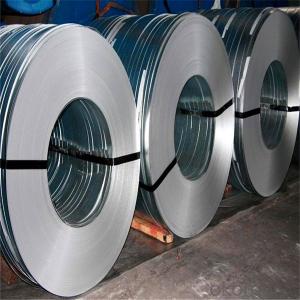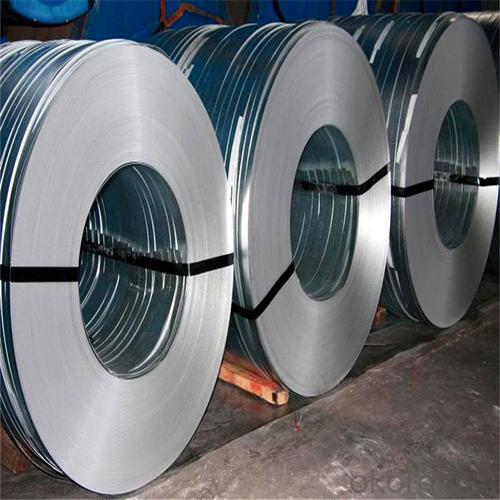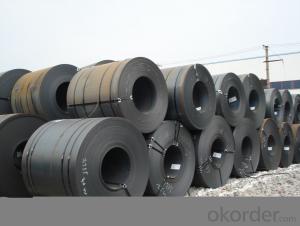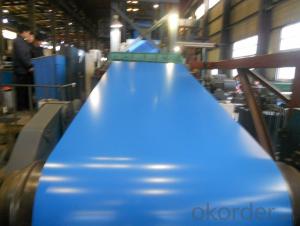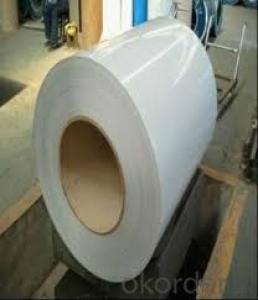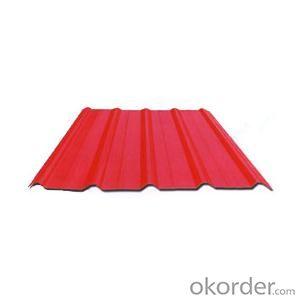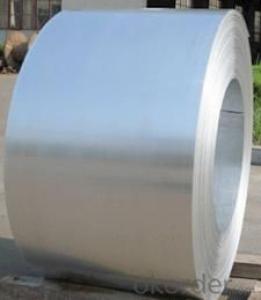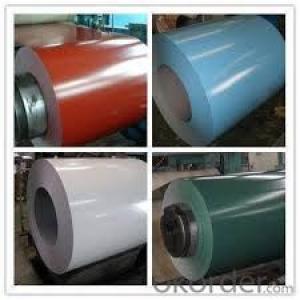Hot Rolled Steel Coil /Steel Plate/Steel Sheet
- Loading Port:
- China main port
- Payment Terms:
- TT OR LC
- Min Order Qty:
- 23 m.t.
- Supply Capability:
- 50000 m.t./month
OKorder Service Pledge
OKorder Financial Service
You Might Also Like
Specification
Product Description
Product | Hot Rolled Steel Coil |
Place of origin | Tianjin, China |
MOQ | 25 tons |
Thickness | 1.0mm-80mm |
Width | 600mm-3000mm |
Length | In coil, 3000-15000mm |
Application | Construction of vessels, containers, buildings, roads, railways, other infrastructure, appliances, and so on. |
Standard | AISI, ASTM, BS, DIN, JIS, GB, etc |
Grade | A572,A573,A633,A678,A709,A710,G3101,G3136,etc |
Type | Steel Coil |
Surfacing | Vanished, painted, oiled or as request |
Technology | Hot Rolled |
Price | FOB USD 500-900 per ton |
Port | Tianjin, China |
Payment Terms | L/C,T/T, Western Union, Money Gram |
Product Ability | 5000 tons per month |
Delivery | Within 15-30 days upon receipt of L/C or deposits |
Packing | Standard seaworthy export packing or as the request of customers |
Chemical Composition
Grade | Chemical Composition | ||||
C | Si | Mn | P | S | |
Q345B | ≤0.20 | ≤0.55 | 1.00-1.60 | ≤0.040 | ≤0.040 |
Q345C | ≤0.20 | ≤0.55 | 1.00-1.60 | ≤0.035 | ≤0.035 |
Q345D | ≤0.18 | ≤0.55 | 1.00-1.60 | ≤0.030 | ≤0.030 |
Product Image
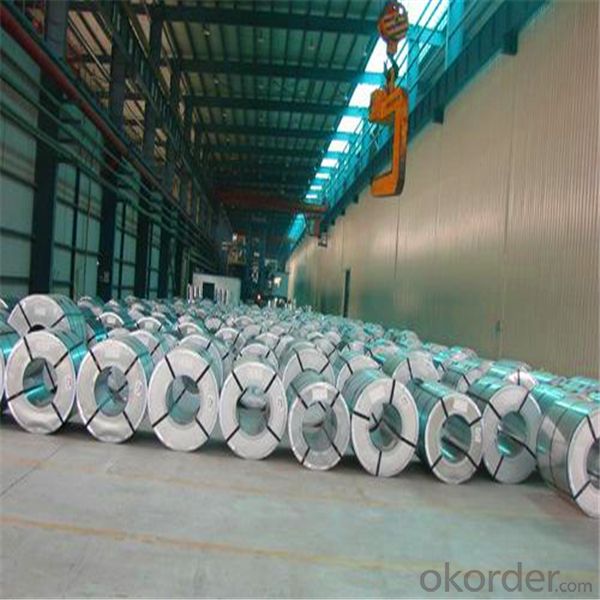
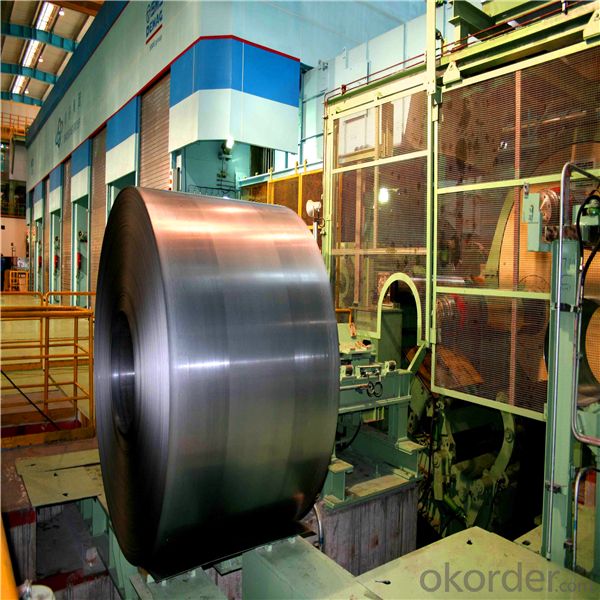
FAQ
1. Q: What's the MOQ?
A: Our MOQ is 25mt.
2. Q: What's the delivery time?
A: It will take about 30 days after TT or L/C.
3. Q: What is the payment terms?
A: T/T, L/C at sight
4. Q: How does your factory carry out quality control?
A: We attach great importance to quality control.Every part of our products has its own QC.
5. Q: What certificate do you have?
A: We have SGS, ISO9001 etc. Also we can apply any certificate if you need if the qty is OK.
- Q: How are steel coils used in the production of agricultural structures?
- Due to their exceptional strength and durability, steel coils find extensive use in the production of agricultural structures. These coils, typically composed of high-quality steel, have various applications within the agricultural industry. One major application of steel coils in agricultural structures involves the construction of buildings and storage facilities. By using steel coils, farmers can create robust frameworks that support the walls and roofs of these structures. The inherent strength of steel allows for the construction of spacious areas without the need for excessive support columns, providing farmers with ample storage space for their crops, machinery, and livestock. Furthermore, steel coils play a crucial role in the manufacturing of agricultural equipment and machinery. Whether it be tractors, plows, harvesters, or irrigation systems, steel coils are essential in the fabrication of these tools. The high tensile strength of steel ensures that these agricultural machines can endure the rigorous conditions of farming, including heavy loads, rough terrains, and exposure to harsh weather elements. Moreover, steel coils are also indispensable in the production of fencing and enclosures for agricultural purposes. Whether it's safeguarding crops from animals or establishing boundaries for livestock, steel coils are a vital component in constructing robust and reliable fences. The strength of steel guarantees that these fences can withstand the pressure from animals, preventing them from breaking through and causing harm to the crops or escaping. In conclusion, steel coils are a vital component in the production of agricultural structures and equipment. Their strength, durability, and versatility make them an ideal material for constructing buildings, manufacturing machinery, and creating fences in the agricultural industry.
- Q: I want to know if Diamond is stronger than Steel.
- diamond are hard but it is not stronger than steel because diamond is a kind of element but the steel is not .steel are influenced by the people
- Q: I wanna strip down my bike and take off all the paint... im thinking of leaving it just the steal color... Do i need to put anythinng on the steel to coat it or can i just leave it like that... Will it rust or anything?
- It will rust but there is a product called POR that comes in clear, it will stop rust almost forever. If you don't want to go to that expense then rinse it down with acid. Ask at an automotive paint store for it.
- Q: How are steel coils used in the production of roofing and siding?
- Steel coils are an essential component in the production of roofing and siding materials. These coils, made from high-quality steel, undergo various processes to transform them into the final products used for roofing and siding purposes. Firstly, the steel coils are uncoiled and flattened to obtain a flat sheet of steel. This sheet is then cleaned to remove any impurities or contaminants. The cleaning process involves treating the surface of the steel with chemicals and rinsing it thoroughly to ensure a clean and smooth surface. Next, the steel sheet is coated with a protective layer to enhance its durability and resistance to corrosion. This coating can be done through various methods such as hot-dip galvanizing, electro-galvanizing, or applying a layer of metallic or organic coating. The specific coating method depends on the desired properties and aesthetic requirements of the roofing or siding material. After the coating process, the steel sheet is formed into the desired shape and profile. For roofing applications, the steel sheet is typically corrugated or formed into interlocking panels. This allows for easy installation and ensures a secure and weatherproof roofing system. Similarly, for siding applications, the steel sheet can be formed into different profiles such as horizontal or vertical panels, shingles, or shakes. Once the steel sheet is formed, it may undergo additional treatments to enhance its performance. This can include applying a protective layer of paint or other finishes to improve its appearance and resistance to fading, chipping, or scratching. The steel coils can also be embossed or stamped with patterns or textures to provide aesthetic appeal. Overall, steel coils play a crucial role in the production of roofing and siding materials. They provide strength, durability, and weather resistance, making them an ideal choice for protecting buildings from the elements. Additionally, steel coils offer versatility in terms of shape, profile, and finish, allowing for a wide range of design options for roofing and siding applications.
- Q: How are steel coils used in the production of heating and cooling systems?
- Steel coils are used in the production of heating and cooling systems as they serve as the primary component for heat transfer. These coils are designed to efficiently transfer heat or cool air, allowing for the effective regulation of temperature in heating and cooling systems.
- Q: What are the end uses of galvanized steel coil? What is the market like for this raw material? Would something like this be expensive?Also can you explain: PPGI.And the following specifications; what do they mean/represent?Required Composition :Thickness- 0.23mmCarbon- Max. 0.01%Manganese- Max. 0.20%Phosphorous- Max. 0.05%Sulphur- Max. 0.01%Silicon- ABT. 2.80 - 3.50%CRGO Quality- Prime QualityThanks
- Steel coil is the name given to thinner sheet steel when it is manufactured - it comes out of the machine and is formed into a coil for ease of handling storage and transportation. Thin sheet steel is used for plenty of stuff. It can be slit (cut) into thin strips as well as just cropped and used at one of the standard lengths x widths it leaves the mill. There is a big market for this material. It is used in many construction and engineering applications for things like ducting, boxes, gutters, down pipes, flashings, panels, car bodies etc., anything made of thin steel Galvanising is a flash coating of zinc which improves it's corrosion resitance. Cost wise it is a relatively cheap material. The chemical composition of steel varies, it is mostly iron but has various other elements added or present as impurities that change it's characteristics, depending on the end use. These additional elements can be selected to give better weld ability, hardness, tensile strength, corrosion resistance, flexibility and so on. In many applications excess of these chemicals is undesirable. For example sulphur and carbon are generally better at lower levels. The chemical composition data is contained in a material data sheet and expressed as a percentage of the chemical present and which gives the composition of a particular batch of steel, allowing it to be selected for particular applications and traced for quality assurance purposes. The list you have there shows presence and quantity of other elements in a particular batch of coil. The thickness is 0.23mm, quite thin.
- Q: What are the different types of steel coil surface treatments for outdoor applications?
- For outdoor applications, there are several commonly used surface treatments for steel coils that enhance durability, corrosion resistance, and appearance. Examples of these treatments include: 1. Galvanized: This treatment involves applying a layer of zinc to the steel surface, providing excellent corrosion resistance. Galvanized steel coils have a shiny, silver appearance. 2. Galvalume: Galvalume is a combination of aluminum and zinc applied to the steel surface, offering superior corrosion resistance compared to galvanized steel. Galvalume steel coils have a duller, matte finish. 3. Painted: Steel coils can be painted with various coatings to enhance appearance and protect against corrosion. The paint can be applied in single or multiple layers, depending on the desired level of protection. Painted steel coils are available in a wide range of colors and finishes. 4. Powder Coated: This type of paint coating is applied as a powder and then cured under heat, resulting in a durable and long-lasting finish. Powder coated steel coils are resistant to chipping, scratching, and fading, making them suitable for outdoor applications. 5. Organic Coated: Organic coatings, such as PVC or PVDF, are applied to steel coils to provide additional protection against corrosion and weathering. These coatings are commonly used in architectural applications where aesthetics and durability are important. These various surface treatments for steel coils offer different levels of protection and aesthetic options for outdoor applications. The choice of treatment depends on factors such as the intended use, environmental conditions, and desired appearance.
- Q: How are steel coils used in the production of industrial shelving?
- Steel coils are used in the production of industrial shelving as they are typically cut and shaped into various components, such as uprights, beams, and braces, which are then assembled to create sturdy and durable shelving units. The coils provide the necessary strength and stability required to support heavy loads and withstand the demands of an industrial environment.
- Q: which elements are alloyed to make stainless steel?A Fe, CB Fe, MnC Fe, NiD Fe, CrE Fe, Cr, Ni
- E. Stainless steel is mainly comprised of Cr and Ni. Steel is an alloy composed mainly of iron. On a side note, Carbon is not really in stainless steel and it is only less than .1%
- Q: What are the common sizes of steel coils?
- The common sizes of steel coils vary depending on the specific needs and requirements of different industries. However, there are some standard sizes that are commonly used in the steel manufacturing and processing sectors. These include: 1. Slit Coils: Slit coils are typically smaller in size and are commonly available in widths ranging from 0.5 inches to 72 inches. The weight of slit coils varies, but it is usually between 1000 pounds to 50,000 pounds. 2. Master Coils: Master coils are larger in size and are typically used in steel processing facilities to produce various steel products. The width of master coils usually ranges from 36 inches to 96 inches, while the weight may vary from 5,000 pounds to 60,000 pounds. 3. Sheet Coils: Sheet coils are often used in construction, automotive, and appliance manufacturing industries. The standard sizes for sheet coils vary, but they are commonly available in widths of 48 inches, 60 inches, and 72 inches, with lengths ranging from 96 inches to 240 inches. 4. Plate Coils: Plate coils are primarily used in heavy-duty applications such as shipbuilding, bridge construction, and pressure vessel manufacturing. The sizes of plate coils are typically larger, with widths ranging from 36 inches to 96 inches, and lengths varying from 96 inches to 480 inches. It is important to note that these sizes are not fixed and can be customized based on specific customer requirements. Steel manufacturers and suppliers often have the capability to produce coils in various sizes to meet the diverse needs of their clients.
Send your message to us
Hot Rolled Steel Coil /Steel Plate/Steel Sheet
- Loading Port:
- China main port
- Payment Terms:
- TT OR LC
- Min Order Qty:
- 23 m.t.
- Supply Capability:
- 50000 m.t./month
OKorder Service Pledge
OKorder Financial Service
Similar products
Hot products
Hot Searches
Related keywords
